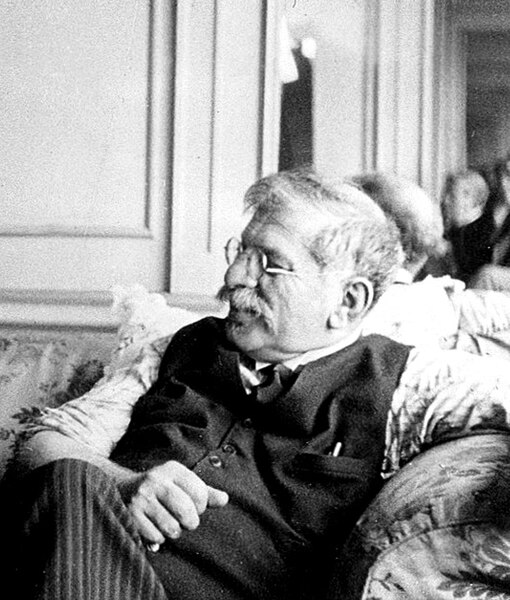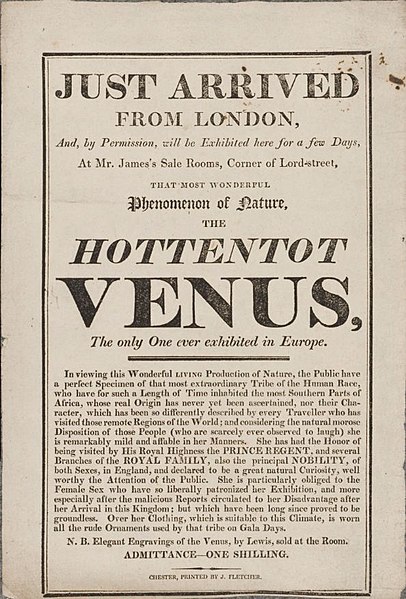Magnus Hirschfeld was a Jewish German physician and sexologist, whose citizenship was later revoked by the Nazi government. Hirschfeld was educated in philosophy, philology and medicine. An outspoken advocate for sexual minorities, Hirschfeld founded the Scientific-Humanitarian Committee and World League for Sexual Reform. He based his practice in Berlin-Charlottenburg during the Weimar period. Performance Studies and Rhetoric Professor Dustin Goltz characterized the committee as having carried out "the first advocacy for homosexual and transgender rights".
Hirschfeld in 1932
Hirschfeld (center) with Bernhard Schapiro and Li Shiu Tong (also known as Tao Li), c. 1930
Poster advertising Sarah Baartman
Memorial plaque in Berlin-Tiergarten
Scientific-Humanitarian Committee
The Scientific-Humanitarian Committee was founded by Magnus Hirschfeld in Berlin in May 1897, to campaign for social recognition of lesbian, gay, bisexual and transgender people, and against their legal persecution. It was the first LGBT rights organization in history. The motto of the organization was "Per scientiam ad justitiam", and the committee included representatives from various professions. The committee's membership peaked at about 700 people. In 1929, Kurt Hiller took over as chairman of the group from Hirschfeld. At its peak, the WhK had branches in approximately 25 cities in Germany, Austria and the Netherlands.

Vita homosexualis, a 1902 collection of August Fleischmann's popular pamphlets on third gender and against §175 - a Wissenschaftlich-humanitäres Komitee library copy, confiscated on 6 May 1933, annotated on the endpaper: By Reichspräsident's decree of 28.02.1933 destined for destruction! and hidden from the publique (label "Secr.") as Nazi plunder by the Prussian State Library. This book, and other that may have survived the destruction of the Wissenschaftlich-humanitäres Komitee and the Institut für Sexualwissenschaft, are sought after by the Magnus-Hirschfeld-Gesellschaft in Berlin.





